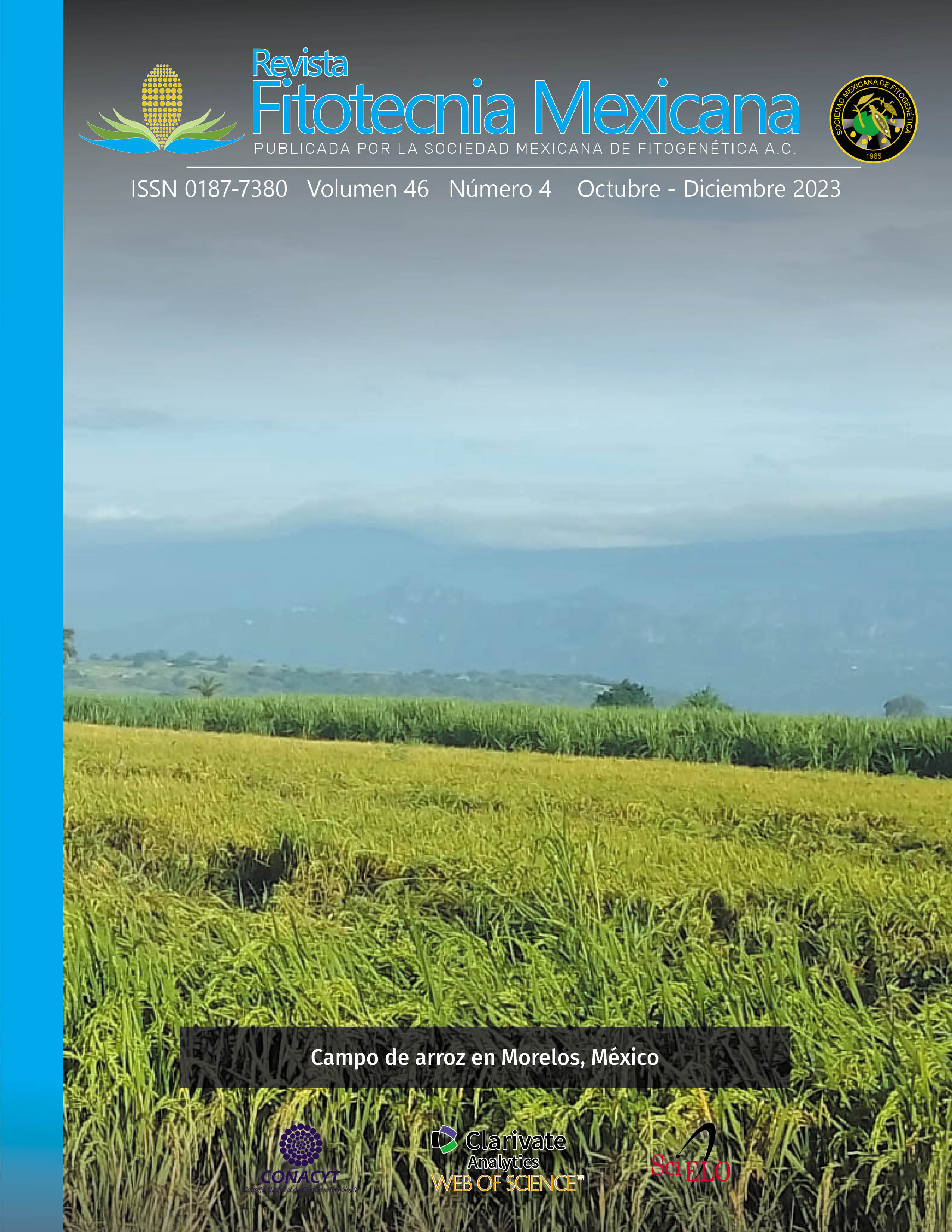SEED YIELD STABILITY OF PARENTS OF HIGH-VALLEY MAIZE HYBRIDS
Main Article Content
Abstract
In breeding and seed multiplication programs, it is important to identify suitable production environments, as well as adequate yield, stability, adaptability and genotype-environment interaction in commercial hybrid parents; nevertheless, in the high valleys of the Central Plateau of Mexico, there is little information on the parents of maize hybrids. The aim of this research was to know the seed yield stability of nine inbred lines and three single crosses progenitors of three maize hybrids adapted to the high valleys of Mexico. The experimental design was randomized complete blocks with three replications in five environments. The evaluated traits were seed yield, days to male flowering and plant height. Statistical analysis included combined analysis of variance, multiple comparison of means (Tukey, P ≤ 0.05) and for the genotype-environment interaction the SREG model was used. Progenitors M-43×M-44, M-55, M-52, M-54 and hybrid H-66 were the most stable in yield. The M-48 line showed specific adaptation in the Celaya environment (CEL) and the M-47×M-46 cross was specific to San Luis de la Paz (SLP). Results indicate that SLP and CEL can be alternative locations to Coatlinchán, State of Mexico with suitable characteristics for seed production of parents of maize hybrids from high valleys of Mexico.

